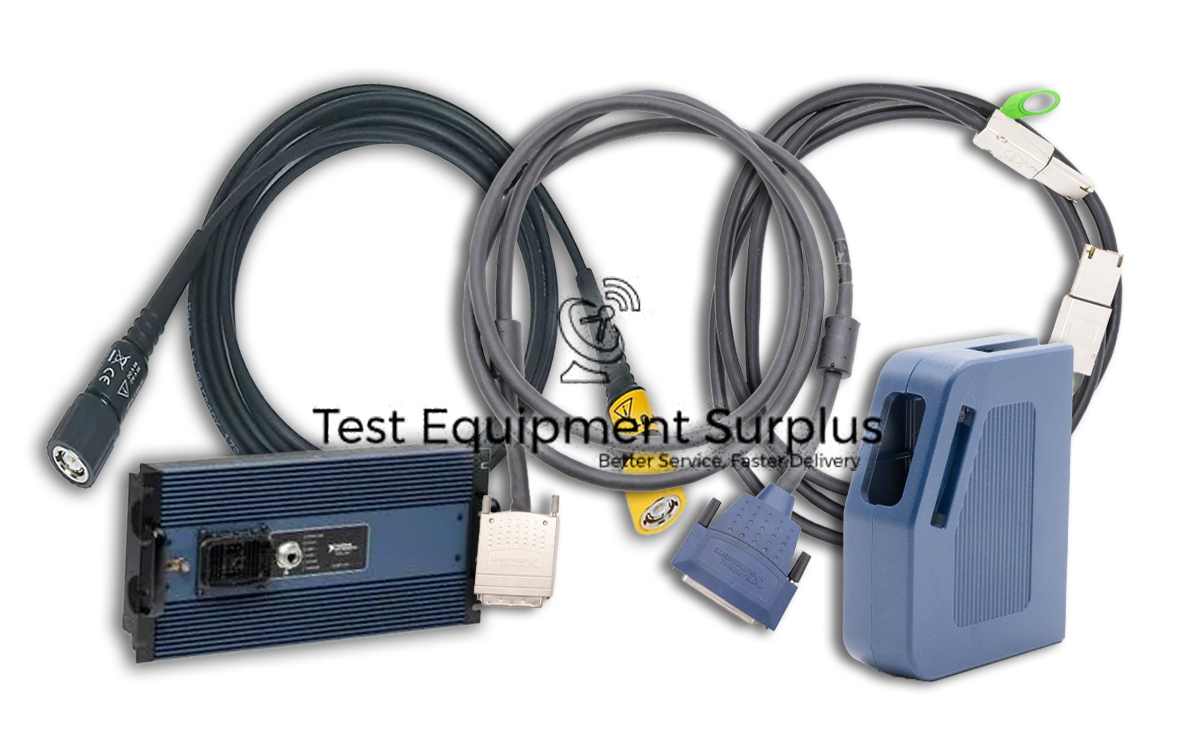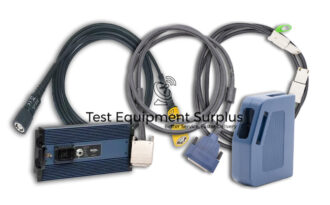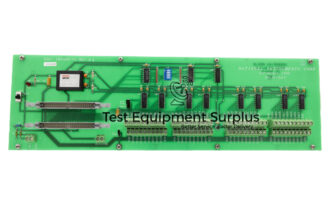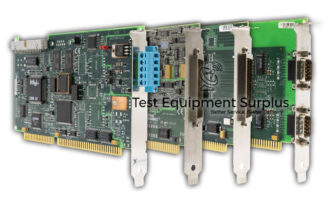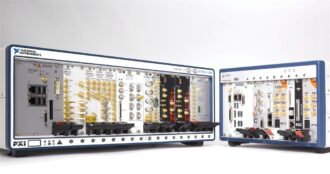Description
The SB-MXI Interface Board, with part number 181155-01, is a product of National Instruments designed for SBus expansion slots and is a component of the VME-SB2020 interface kit.
This board is essential for connecting Sun workstations to the VMEbus, ensuring seamless integration with software such as NI-VXI for Solaris, LabVIEW, and LabWindows, and is compatible with Solaris versions 1.x and 2.x.
Installation requires a 2 m Type M1 MXIbus cable and the board is designed to be user-friendly, utilizing geographic addressing from the SBus without the need for any configuration switches or jumpers.
It operates at an SBus interrupt level-3 and has a current measurement of 2.5 A typical, with a 3.5 A maximum. Despite its obsolete status announced by the manufacturer, it remains available for purchase and repair through Apex Waves.
| Specification | Detail |
|---|---|
| Part Number | SB-MXI |
| Manufacturer | National Instruments |
| Part of Kit | VME-SB2020 interface kit |
| NI Part Number | 181155-01 |
| Designed For | SBus expansion slots |
| Software Compatibility | NI-VXI software for Solaris, LabVIEW, LabWindows |
| Compatible Solaris Versions | Solaris 1.x and 2.x |
| Function | Connects Sun workstations to VMEbus |
| Recommended Cable | 2 m Type M1 MXIbus cable |
| Configuration | No switches or jumpers (uses geographic addressing from SBus) |
| Interrupt Level | SBus interrupt level-3 |
| Current Measurement | 2.5 A typical, 3.5 A maximum |
| Obsolete Status | Announced by National Instruments; available for purchase and repairs by Apex Waves |
Question 1: What is the purpose of the SB-MXI Interface Board part number 181155-01, and what specific systems and software does it support for seamless integration?
Answer 1: The successful integration of the SB-MXI Interface Board, part number 181155-01, into a Sun workstation environment requires a 2 m Type M1 MXIbus cable, an available SBus expansion slot, and is supported by software such as NI-VXI for Solaris, LabVIEW, and LabWindows, with compatibility for Solaris versions 1.x and 2.x.
Question 2: What are the necessary components and software requirements for the successful integration of the SB-MXI Interface Board, part number 181155-01, into a Sun workstation environment?
Answer 2: The SB-MXI Interface Board with part number 181155-01 is designed to connect Sun workstations to the VMEbus, ensuring seamless integration with systems running Solaris versions 1.x and 2.x, and supports software such as NI-VXI for Solaris, LabVIEW, and LabWindows.
Question 3: What type of cable is required for the installation of the SB-MXI Interface Board, part number 181155-01, designed by National Instruments for SBus expansion slots?
Answer 3: The SB-MXI Interface Board with part number 181155-01, manufactured by National Instruments for SBus expansion slots, is purposed for connecting Sun workstations to the VMEbus, enabling seamless integration with software such as NI-VXI for Solaris, LabVIEW, and LabWindows, and is compatible with Solaris versions 1.x and 2.x.
Question 4: What is the function of the SB-MXI Interface Board part number 181155-01, and which systems and software does it support?
Answer 4: A 2 m Type M1 MXIbus cable is required for the installation of the SB-MXI Interface Board, part number 181155-01, designed by National Instruments for SBus expansion slots.
Question 5: What is the purpose of the SB-MXI Interface Board part number 181155-01, and how does it integrate with Sun workstations and specific software versions?
Answer 5: The SB-MXI Interface Board with part number 181155-01 is designed to connect Sun workstations to the VMEbus as part of the VME-SB2020 interface kit, and it supports systems with SBus expansion slots, as well as software such as NI-VXI for Solaris, LabVIEW, and LabWindows, specifically on Solaris versions 1.x and 2.x.

